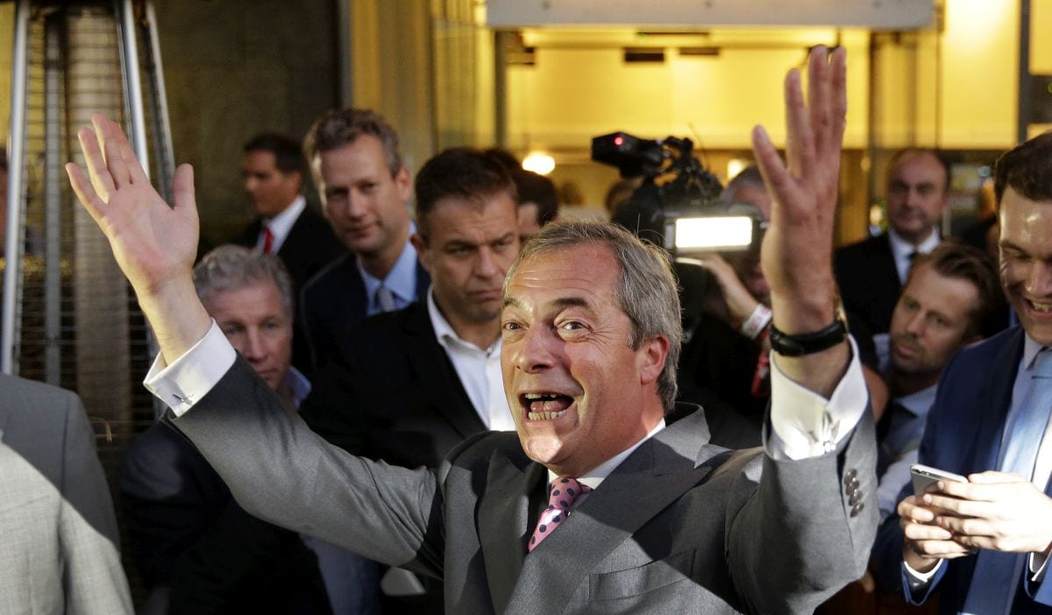The referendum that determined Great Britain’s future outside of the European Union was not decisive. A 52-48% victory for Brexit is hardly a clarion call to exert British nationalism at the expense of the common market.
In America, we try to ensure that great changes are accomplished through the will of more than a simple majority. It takes 2/3 of Congress to override a presidential veto and 75% of the states to adopt a constitutional amendment. These rules are part of the checks and balances on power the founders wisely included in the Constitution. But the supermajorities also ensure that the people’s passions of the moment do not lead to rash judgments that could harm liberty.
In Great Britain, no such electoral mechanism exists, which may be a reason there is so much bitterness from the “Remain” side today. Such a monumental decision by the people, fraught with both danger and opportunity, should have been put to a sterner test than 50% of the vote plus 1.
There is near disbelief by the pro-EU side regarding this decision, with the elites and their allies blaming the disaster on the stupidity of the ordinary British voter. How could they not love what the EU was offering? Easy travel across the continent, an integrated market for British products, access to global markets and financial products, and an end to the old bugaboo of nationalism that the pro-EU forces said led to wars, poverty, and pestilence.
But what the elites saw as heaven, most of the rest of ordinary Europeans see as hell: lost industries, lost jobs, and the loss of something inexplicable. They were losing that which beat in their living hearts and that these ordinary folk knew deep down was just plain wrong.
They were losing their national identity.
Of course, that was the entire reason the EU came into existence. In 2005, Mark Leonard published a book called Why Europe Will Run the 21st Century. Leonard’s explanation seems quaint and somewhat clueless today. But given what had been happening in Europe since the end of the cold war, it made perfect sense then.
In the book, Leonard took issue with the notion that China or India could soon eclipse America as a world power. “Those countries suffer from the same problems as the United States: they are large, nationalistic nation states in an era of globalisation,” he wrote. “The European Union is leading a revolutionary transformation of the nature of power that in just 50 years has transformed a continent from total war to perpetual peace. By building a network of power—that binds states together with a market, common institutions, and international law—rather than a hierarchical nation-state, it is increasingly writing the rules for the 21st Century.”
That was 2005. Today, Leonard is singing a far different tune.
One of the troubling things about the world of 2016 is that most Europeans feel that the world around them is in a state of chaos and that it’s the world that is transforming them—[for example], through the Arab uprisings going wrong, which means that Europe’s neighbors are not importing democracy and European values, but exporting refugees and chaos. One of the central parts of my story was about how the EU seemed to be remaking Turkey—now it’s Turkey that dictates the terms of trade by threatening to send refugees into the EU. At a global level, a lot of the institutions that seemed to be becoming increasingly important have been gridlocked by geopolitical competition.
Therefore, the basic mindset of Europeans has changed. Instead of thinking about the EU as a universal project, which would change everyone else, they’re starting to think about the EU as a fragile, exceptional project that needs to be defended from others. These changes to the external environment have come at a time when, domestically, a lot of countries have been under a lot of economic pressure with the [European economic] crisis, even in countries like Britain that were very affected by the [2008] global financial crisis and introduced [government budget] austerity as a result.
So was Brexit all about a pushback against globalization by those who have been left behind in the “new” economy? The trigger may have been globalization. But the bullet was the mass exodus of refugees from countries and regions with no sense of “Britishness” or “Germanness” and no desire to adapt themselves to their new country. Before their eyes, ordinary Europeans are seeing their countries transformed with the subsequent loss of national identity.
Elites may want Great Britain’s national identity to be lost. But for ordinary citizens, it is a large part of how they define themselves. Their history, traditions, values, myths, songs, legends and place names are a far larger part of them then any connection to the nebulous and vague notion of “Europe.” It’s clear that the flood of immigrants in the last year has awakened feelings of patriotism, deliberately suppressed by elites who feared their plans for a single European nation would be short circuited if people cared too much about their national identity, and that rather than watch as their countries disappeared, the common people took the opportunity presented by Brexit to put their foot down.
It could be argued that immigration gave “Leave” the votes it needed to win the day. But suppose a day comes in the near future where the refugee problem is no longer considered crucial and the EU invites Great Britain to rejoin. With such a close vote, it’s difficult to say that the same outcome would be achieved.
Is Brexit a harbinger of the future? The problem isn’t that other European states won’t follow, or even that the EU will probably collapse. The fact is, this is the third time in the last 200 years that there has been an effort to unite the continent, and there’s no reason to think there won’t be a fourth. Napoleon’s troops came very close to controlling most of the continent, only to be stymied not by armies united against him, but by the brutal Russian winter in which most of his mighty host perished in 1812. Hitler’s army of European conquest met a similar fate.
This latest iteration of attempted European unity may eventually run aground, but the dream will never die. And that’s the problem for Brexit supporters and others who don’t want a United States of Europe. There is a huge generational divide between “Leave” and “Remain” that might presage another time in the not too distant future when the dreamers will try again.
Fully 3/4 of young people under the age of 25 supported “Remain,” while a similar percentage over the age of 75 supported “Leave.” Of course, it’s hard to predict the future attitudes of the young, but those numbers suggest when the idea of a united Europe is once again broached, there will be less resistance than there is today.
It could be that all this sturm and drang will be for naught and that historians will look back on the Brexit referendum as the last gasp of the traditional nation state.










Join the conversation as a VIP Member